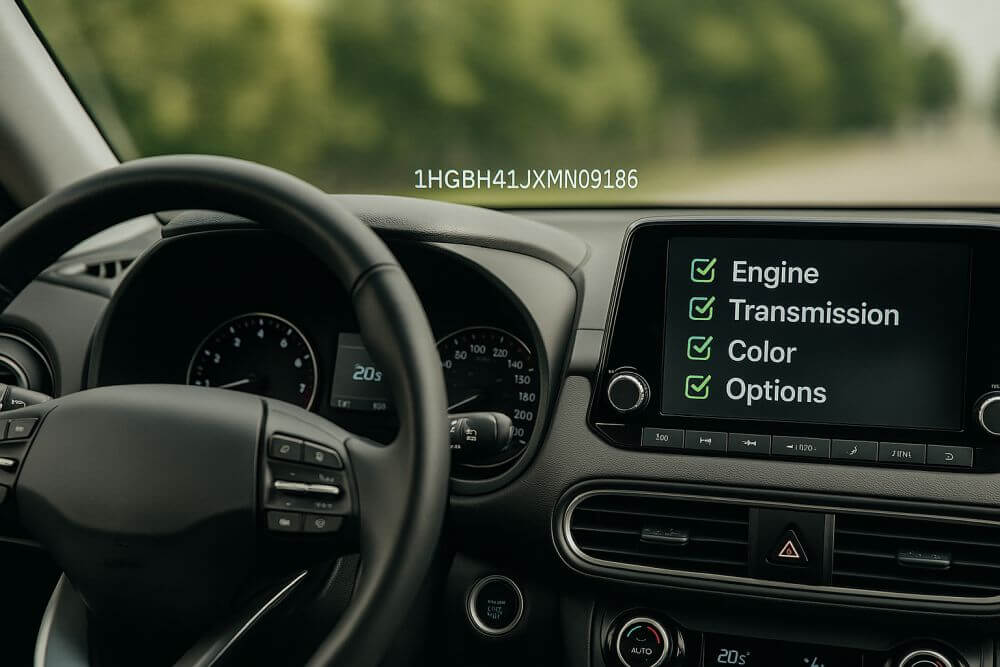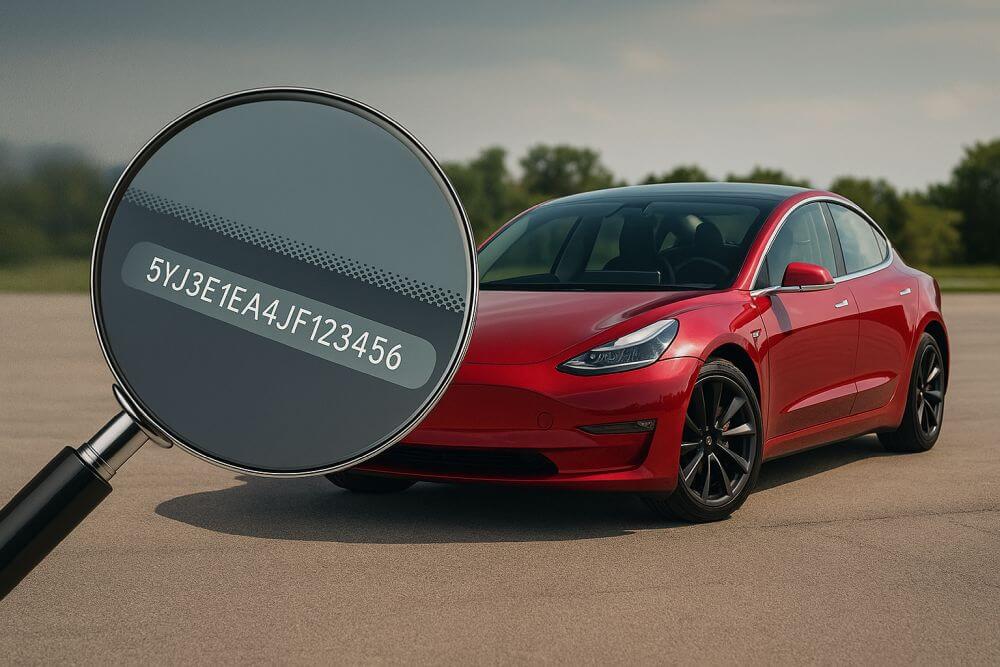Your vehicle identification number (VIN) is like your car’s social security number. The unique VIN numbers assigned to your vehicle provide plenty of information about your car, including where it’s from, who manufactured it and what it looks like. Your VIN is required to register your vehicle, purchase insurance and pull a free VIN report. Check out these simple tips for breaking down your VIN numbers into easy-to-understand parts.
3 Sections of VIN Numbers

Every VIN for a vehicle manufactured after 1981 has 17 digits broken down into three separate subsections. Those sections include:
World Manufacturer Identifier (WMI)
This section consists of the first three VIN numbers.The first position represents the country of origin, or the country where final assembly occurred. Examples of this include:
United States: 1, 4 or 5
Canada: 2
Mexico: 3
Japan: J
Korea: K
England: S
Germany: W
Sweden/Finland: Y
Italy: Z
The second position tells you who manufactured the vehicle. Examples of manufacturer digits are:
Audi, Jaguar, Mitsubishi: A
BMW, Dodge: B
Chrysler: C
Mercedes-Benz: D
Ford, Subaru: F
General Motors, Pontiac, Saturn: G
Honda, Acura: H
Jeep: J
Nissan: N
Audi: R
Toyota, Lexus: T
Volkswagen, Volvo: V
Chevrolet: 1
Buick: 4
Cadillac: 6
The third position, when combined with the first two, represents the manufacturing division and specific type of car.
Vehicle Descriptor Section (VDS)
This next section, which consists of the next six VIN numbers, gives you an overall description of the car. Positions 4 – 8 offer details about the brand of vehicle, engine size, body style and transmission. These digits are commonly used by service and repair shops to identify specific systems installed in the vehicle by the manufacturer.
The ninth position refers to a security code put in place by the Department of Transportation to detect false VIN numbers.
Vehicle Identifier Section (VIS)
This final section of VIN numbers gives you even more information about the specific vehicle, including a unique serial number the car was given as it came off the assembly line.
The 10th position indicates the model year of the car. Some examples of these more recent VIN numbers include:
1998: W
1999: X
2000: Y
2001: 1
2002: 2
2003: 3
2004: 4
2005: 5
2006: 6
2007: 7
2008: 8
2009: 9
2010: A
The 11th position represents the specific plant where the vehicle was manufactured. Every manufacturer has its own set of codes to identify their plants.
Positions 12 – 17 indicate the production or serial number for the vehicle. Each manufacturer determines the sequencing of this number separately, so there is no general formula used in these VIN numbers.
VIN numbers may look like a jumbled, random sequence, until you discover that each digit has a unique purpose in identifying your vehicle. Whether you are searching out your VIN for a free car report or another purpose, understanding what the numbers mean can help you make sense of your car’s own DNA.


